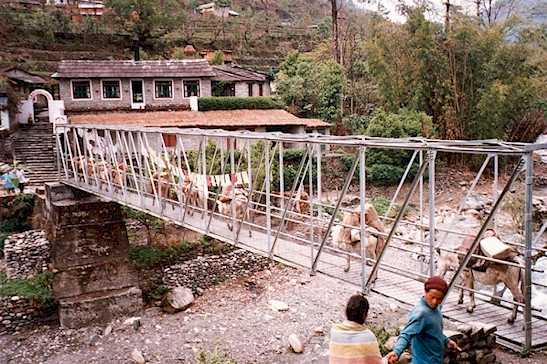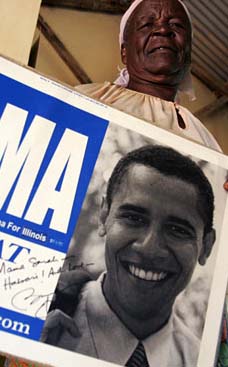
In Pyuthan, the district where I taught, Maoist attacks forced private schools to close in 2001. Four years later, amid another round of violence, private schools across the country shut down. They reopened two weeks later, following a concerted campaign by parents, students, and human rights organizations. Now these same groups are protesting the new Maoist government, which entered electoral politics two years ago and won a parliamentary majority this spring. Tired of Nepal's endemic corruption and inefficiency, voters wanted something new. They also hoped that legislative politics would moderate the Maoists, who would now have to compromise with other parties. It hasn't worked out that way. Turning a deaf ear to protests, the Maoists are moving ahead to ban private investment in primary and secondary schooling by 2011. The goal, they say, is to reduce inequality in education. But, there's every reason to believe that the ban would reduce education, period. At least 1.5 million Nepali children attend private schools, which now account for almost one-third of the country's 41,000 schools. If their schools are closed, where will these students go? Some will stay home, just as they did during the first Communist attacks. Others will flood into the strapped government schools, which are already so crowded that they often hold classes outside.
Jonathan Zimmerman writes: Nepal's ban on private schools is unjust
Nepal's ban on private schools is unjust
Nobody should be forced into a single type of education.
By Jonathan Zimmerman
from the November 28, 2008 edition
New York - In 1983, I joined the Peace Corps and went to Nepal to teach English. I was posted at a school in the Himalayan foothills, in a part of the country that everyone called "Red."
At first I thought the name referred to the color of the mud that clogged the region's roads and rivers during the monsoon. But then I discovered the real meaning: My district was a Communist hotbed. And nobody was more "Red" than its teachers.
Communist affiliation was illegal at the time in Nepal, so my colleagues were reticent to discuss the matter with their American visitor. By the end of my two-year term, however, most of them had opened up to me.
Their message was simple: Only a revolution could save Nepal. And it would start in the schools, which would teach so-called scientific Marxism to a new generation.
So what happens, I asked, if the people don't want their schools to do that? "It's simple," one colleague told me. "We shall make them want it."
I thought of these conversations last week when I read that the new Maoist government in Nepal planned to close all private schools. The announcement triggered loud protests from opposition parties and especially from parents, who vowed to resist the measure. If the goal was to make them want a Red education, it's not working.
The crisis dates back to 1996, when the Maoists – still barred from elections – vowed to take over the schools. In the countryside, especially, they kidnapped teachers and students for political indoctrination and forced labor. They also designed new curricula, hoping to hasten the day that my teacher colleagues envisioned back in the 1980s.
A fourth-grade Maoist syllabus introduced children to dialectical materialism alongside homemade guns. Fifth graders would study grenades and booby traps as well as Spartacus, the Roman slave rebellion leader.
To avoid this mixture of terror and propaganda, many parents kept their children at home. Others sent them to a burgeoning network of private schools, which soon came under Communist fire as well.
In Pyuthan, the district where I taught, Maoist attacks forced private schools to close in 2001. Four years later, amid another round of violence, private schools across the country shut down. They reopened two weeks later, following a concerted campaign by parents, students, and human rights organizations.
Now these same groups are protesting the new Maoist government, which entered electoral politics two years ago and won a parliamentary majority this spring. Tired of Nepal's endemic corruption and inefficiency, voters wanted something new. They also hoped that legislative politics would moderate the Maoists, who would now have to compromise with other parties.
It hasn't worked out that way. Turning a deaf ear to protests, the Maoists are moving ahead to ban private investment in primary and secondary schooling by 2011. The goal, they say, is to reduce inequality in education.
But, there's every reason to believe that the ban would reduce education, period. At least 1.5 million Nepali children attend private schools, which now account for almost one-third of the country's 41,000 schools. If their schools are closed, where will these students go?
Some will stay home, just as they did during the first Communist attacks. Others will flood into the strapped government schools, which are already so crowded that they often hold classes outside.
That's what happened in Kenya in 2003, when the government eliminated fees for its public primary schools and closed private ones. Most of the private-school kids had attended "slum" schools, which were less expensive – but frequently more effective – than government institutions. By eliminating private schools in favor of "free public education," then, Kenya did its public an enormous disservice.
Around the world, indeed, private schools represent a key component of education for the poor. In Nigeria, the government reports that 50 percent of children are too impoverished to attend school. But roughly half of that number – a quarter of school-aged children – attend unregistered private schools, which often provide better services for less money.
Eight years ago, in its Millennium Development Goals, the United Nations resolved to achieve universal primary education by 2015. But the best way to do that is to encourage private schooling, not to squelch it.
It's also a good way to promote democracy, which requires a diversity of ideas – and schools that reflect them.
That's why another UN resolution, the 1948 Universal Declaration of Human Rights, declared that parents "have a prior right to choose the kind of education that shall be given to their children."
That's exactly correct: a prior right. And my Nepali colleagues were wrong.
Nobody should be forced into a single type of education, anywhere in the world. And so long as that continues, none of us are free.
• Jonathan Zimmerman teaches history and education at New York University. He is the author of "Innocents Abroad: American Teachers in the American Century."













